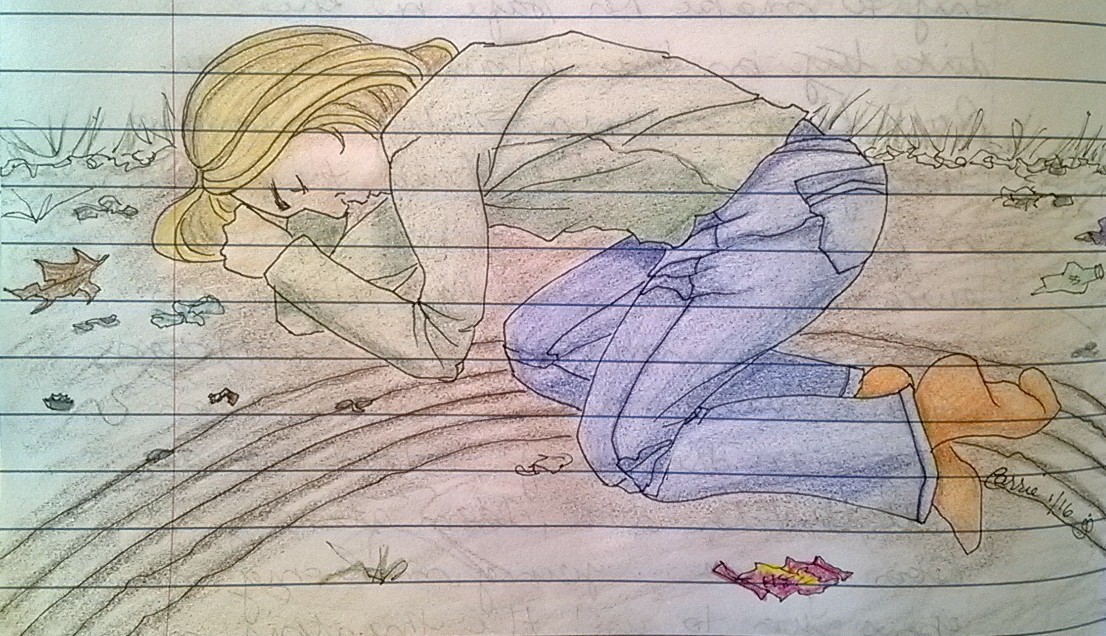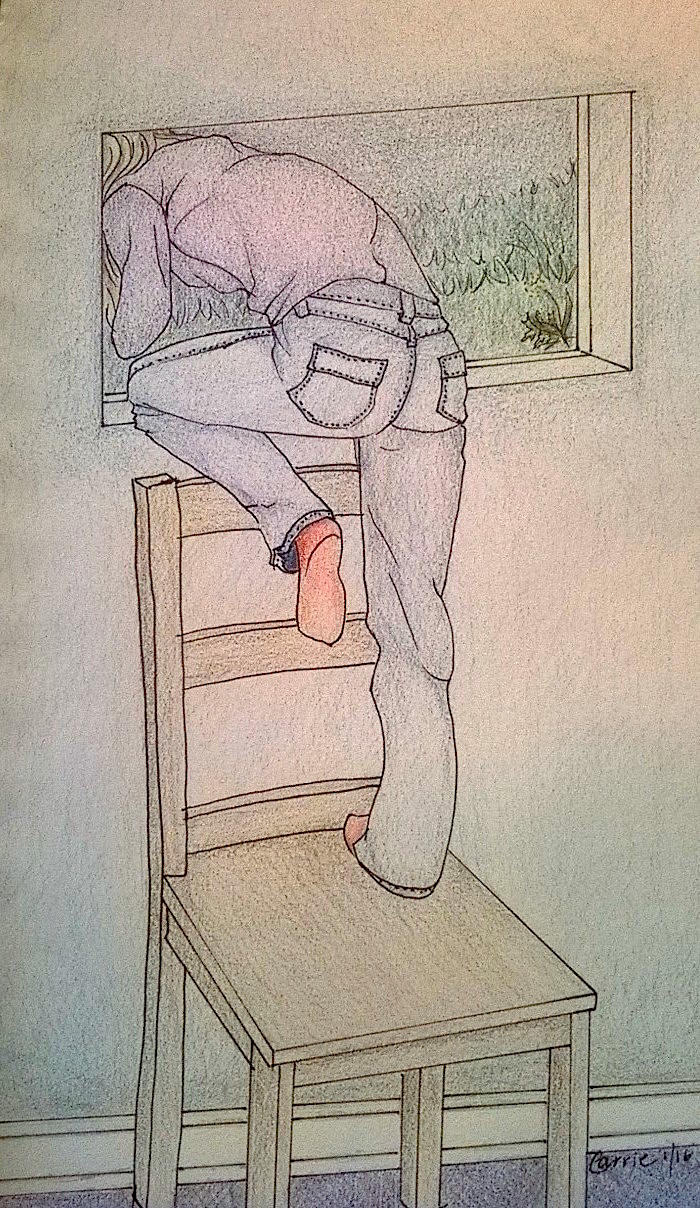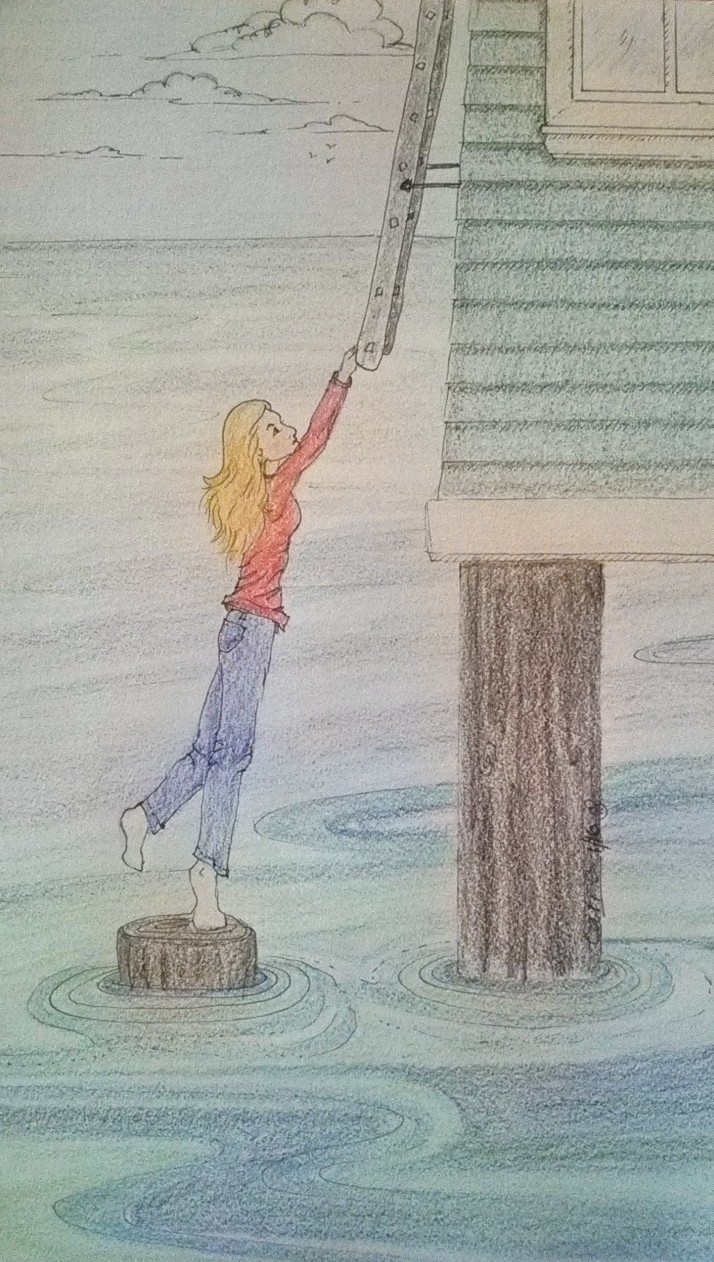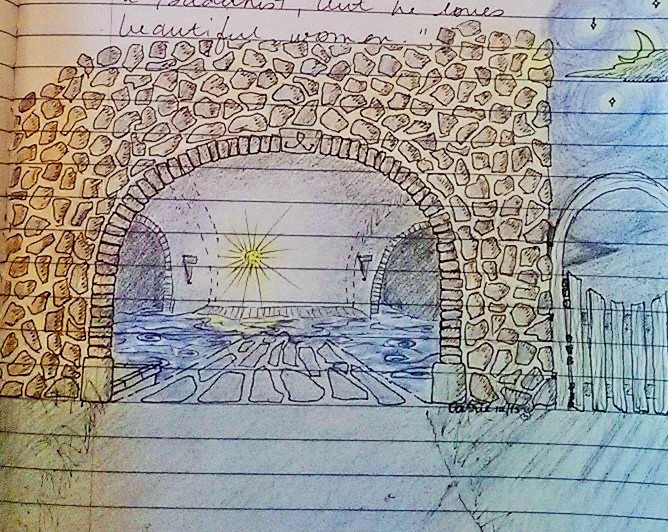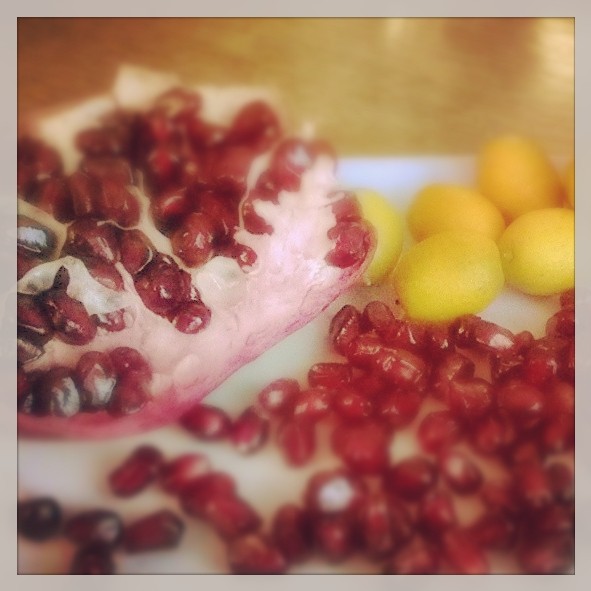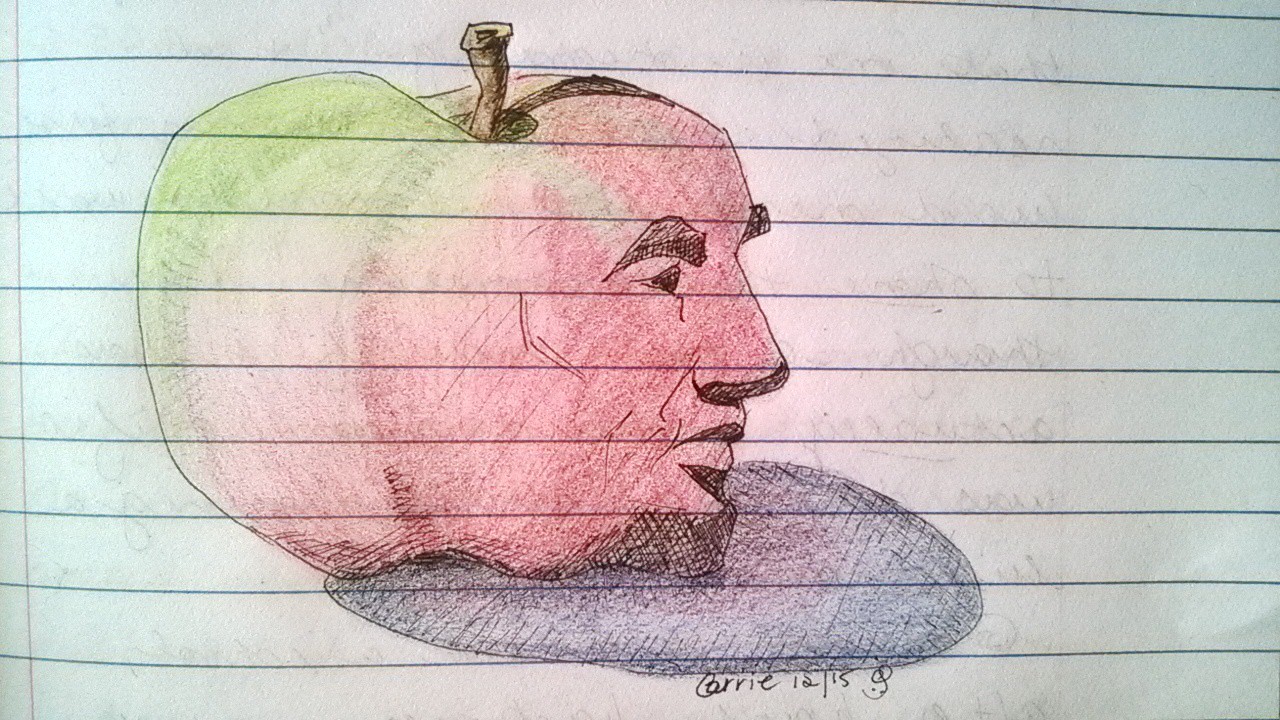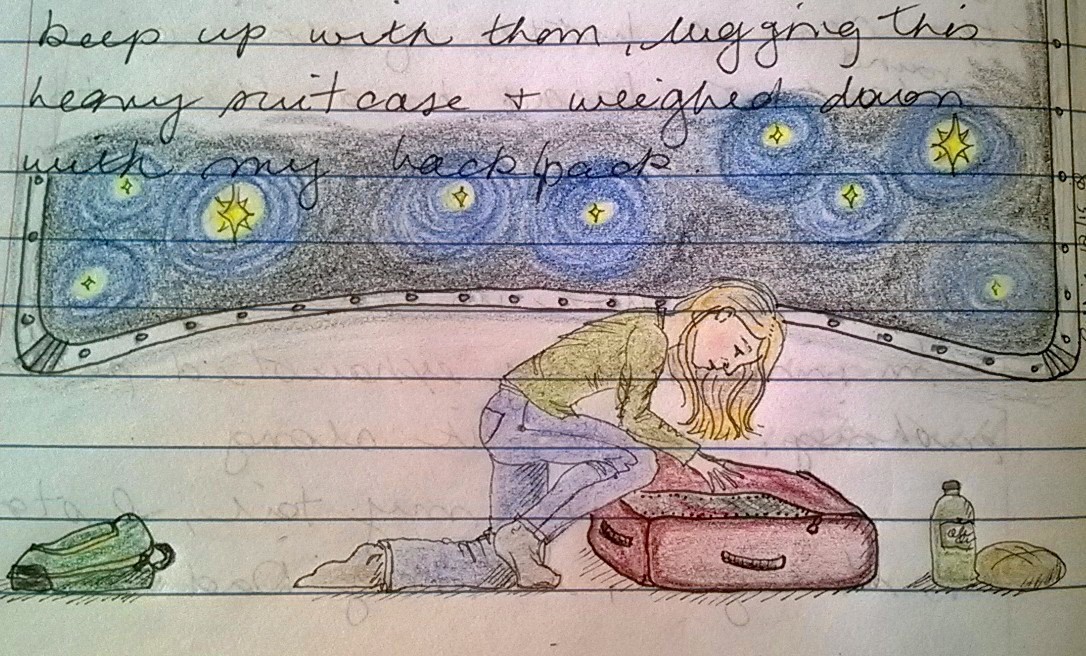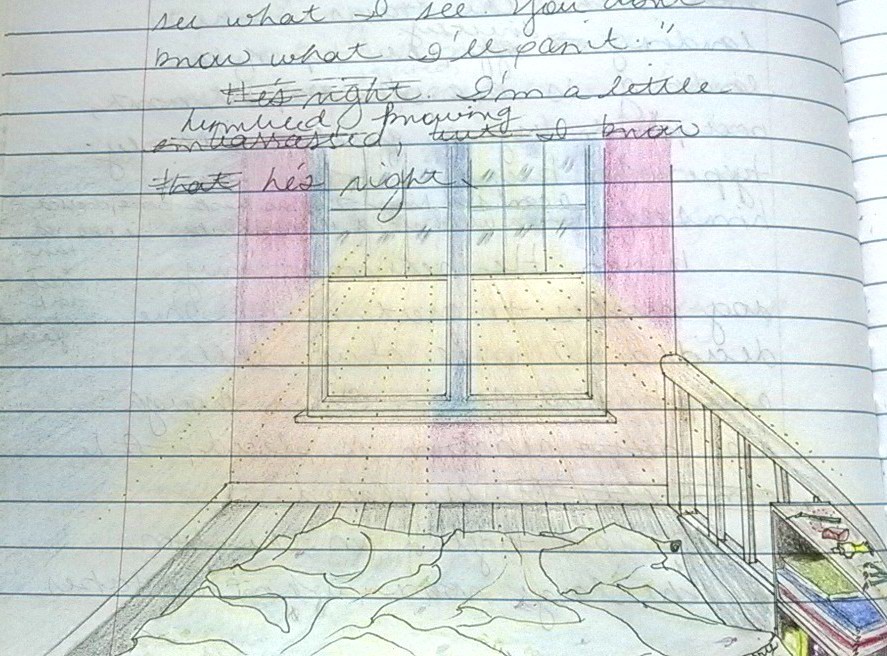The church hall is thronged — a mass of people sitting on the green-and-ivory tiled floor, all facing the stage at the room’s far end. From the back near the kitchen, my vantage allows me an unobstructed view of restless crowd, allows me to see the one, large man lumber to standing. Slowly he turns, his gaze settling on me. His face breaks into a great, goofy grin as he begins pushing his way through the crowd.
No, no, no. I do not have time for this — for his ridiculous games and bad jokes and awkward conversation. I make my escape before he can reach me. Past the coat rack, out the double doors, down the spill of wide steps into the night. To discourage pursuit, I dash across the street, in search of a place to hide. The night is cool and thick with shadow. As I prowl about, I’m concerned someone will mistake me for a burglar. Dogs in my grandmother’s yard raise an alarm. Heading back toward the street, I lie down in the dirt, curling up at the road’s edge. Grit and stones and leaf litter press into my palms, my cheek. Bits of broken glass wink and glitter, lit by passing cars’ headlights. The earth’s chill slips up into hip and shoulder.
When the footsteps approach, I peeking through my lashes, see a little girl dashing across the church’s night-darkened lawn. She can’t be more than eight years old — curly blonde ringlets, blue eyes. Dressed in a flounce of blue and white taffeta, a sky blue ribbon in her hair. Without hesitation, without a look, she skips across the street to lie in the dirt alongside me. Where are her parents? Why is she out here, all by herself, at this late hour? Traffic has increased now, and I worry about her safety, assure myself she is far enough away from the pavement’s crumble.
Checking on her again, she is no longer a little girl, but a young man who regards me with a steady, dark-eyed gaze. There is something menacing about him, predatory. On knees and elbows, I press myself up from the cold, hard earth and run back across the street, down the church’s long driveway. My husband awaits me outside the church’s side door; we’ll enter together, get back into the warmth and safety of the kitchen. But the door is flung open, and that same young man now blocks our entry. He threatens. Commands. Coerces. But I will not be influenced; will not be persuaded or manipulated. Until he changes his tactics, threatens instead to break my husband’s legs if I do not comply…
